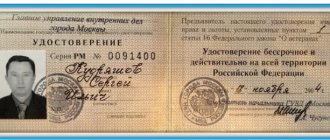Under the donation of art. 572 of the Civil Code of the Russian Federation (Civil Code of the Russian Federation) understands the gratuitous transfer of property into ownership from the donor to the donee. The property transferred in such a transaction can be of any kind, unless it is withdrawn from civil circulation. Such a gift can also include real estate - a residential building or its part (share). Registration of such deeds of gift is carried out in writing, and the transfer of ownership of the share is subject to state registration. When donating a share of a residential building, there are certain features, both in registration and in taxation.
What is a share (part) of a residential building
Art. 128 of the Civil Code of the Russian Federation provides for objects of civil rights with which certain transactions, including donations, can be made. However, among them the law does not distinguish such a concept as “share”. However, in practice it is quite often possible to see that in real estate transactions, i.e. property that is inextricably linked with land (Article 130 of the Civil Code of the Russian Federation), alienation of shares of this property occurs. This also applies to residential buildings. Such houses in accordance with Art. 15 -16 of the Housing Code of the Russian Federation (LC RF) relate to real estate and the category of housing stock.
Taking into account the above, we will try to determine what is meant by the share of a residential building. According to the provisions of Chapter 16 of the Civil Code of the Russian Federation, the definition of shares relates to the institution of property , in particular Art. 244 of the Civil Code of the Russian Federation identifies the concept of shared ownership , when property is in common ownership of several persons, but with the definition of shares.
In this case, does not matter , since such a share, in relation to a residential building, is a share in the ownership right. Those. Regardless of the size of the share, each of the owners of the property has the right to it, or, in other words, can own it and use it at their own discretion (Article 209 of the Civil Code of the Russian Federation). When determining the size of shares in such a house, it is necessary to be guided by the provisions of Art. 245 of the Civil Code of the Russian Federation, which establishes that unless the owners provide otherwise in the agreement, then their shares are considered equal.
Example
There are three people in the Ivanov family who have the right of shared ownership of a residential building consisting of 2 rooms with a total area of 50 square meters. m. In accordance with paragraph 1 of Art. 245 of the Civil Code of the Russian Federation, their shares are considered equal. Moreover, the size of these shares is 1/3 for each owner, but at the same time, each of them can use both rooms of the house and any number of square meters. m.
With shared ownership, there are some restrictions on the disposal of property. They are expressly stated in Art. 246 Civil Code of the Russian Federation:
- it is possible only by agreement with all property owners;
- observance of the pre-emptive right to purchase when alienating property, except in cases of donation.
Form of house share donation agreement
Since a residential building is real estate, in accordance with the requirements of Art. 574 of the Civil Code of the Russian Federation, the deed of gift must be made in simple written form.
Additionally
In this case, the parties have the right to resort to a notarial form if they consider it necessary (Article 163 of the Civil Code of the Russian Federation).
When drawing up an agreement, the parties to the transaction must remember the following conditions:
- Sign of gratuitousness . In its absence, the transaction may be declared invalid (void) and considered as feigned or imaginary (Articles 167, 170, 572 of the Civil Code of the Russian Federation).
- cannot be a donor; representatives on their behalf also cannot enter into transactions of this kind (requirement of Article 575 of the Civil Code of the Russian Federation).
- The transfer of ownership rights to the donee's share is subject to the state registration .
- The mandatory conditions of such an agreement include the object of donation itself (its individual characteristics and size must be indicated), information about registered persons who retain the right to further reside in it, a link to the donor’s title documents and the procedure for state registration of transfer of ownership.
- Among the special conditions of such deeds of gift, one can highlight the value of the object of donation (as a rule, inventory or market value is indicated), information about encumbrances, restrictions, prohibitions, and drawing up an act of acceptance and transfer of a share of the house.
- The possibility of unilateral termination of the contract by either party, in particular for the donor this is the cancellation of the gift or refusal to further fulfill the contract (Articles 577, 578 of the Civil Code of the Russian Federation), for the donee - refusal to accept the gift (Article 573 of the Civil Code of the Russian Federation).
Deadlines
You can donate a share of a land plot as soon as possible:
- collection of documents – 14 days;
- project preparation – within 1 day;
- notarization – within 1 day;
- state registration – 7-10 days.
The procedure will take much longer if the share has not been properly registered. Additional time costs:
- land surveying – from 1 to 6 months;
- cadastral registration – 1 month;
- allocation of a share by agreement – 2 days + 14 days for state registration;
- allocation of a share in court - from 2 to 6 months + 1 month for the court decision to enter into legal force + 14 days for state registration.
Registration of donation of a residential building in Rosreestr
The transfer of ownership of a share of a residential building when making a donation is subject to the state registration procedure in accordance with the requirements of Federal Law No. 122-FZ of July 21, 1997 “On state registration of rights to real estate and transactions with it” (Federal Law No. 122). The registering authority is the Office of Rosreestr for the constituent entity of the Russian Federation (Government Decree No. 457 of June 1, 2009 “On the Federal Service for State Registration, Cadastre and Cartography”).
Information
At the same time, state registration is understood as a legal act of recognition and confirmation by the state of the emergence, transition, termination of rights to real estate (Article 2 of Federal Law No. 122). Only it is evidence of the existence of any right a person has to this property.
The procedure itself is regulated by Art. 13 Federal Law No. 122 and consists of several stages:
- acceptance of documents;
- their legal expertise;
- making entries in the Unified Register of Rights and issuing relevant documents to applicants.
It is necessary to dwell in more detail on the first of these stages - acceptance of the submitted documentation . Among such documents are Art. — Federal Law No. 122 names the corresponding application and other documents necessary to carry out this procedure. Other documents when donating a share of a residential building include the following:
- share donation agreement in three copies (according to the number of parties plus one for the registering authority);
- identification documents of the parties to the transaction (passports);
- the donor's title document for the residential premises;
- receipt of payment of the state duty (its amount in accordance with paragraph 22, paragraph 1, article 333.33 of the Tax Code of the Russian Federation (TC RF) is 2000 rubles );
- technical documentation from BTI;
- an extract from the house register or a certificate from the passport office about persons registered in the residential premises;
- consent of the guardianship and trusteeship authorities, in the case where minors or incompetent persons live in the residential premises, when such a transaction may affect their legal rights and interests;
- documents confirming the authority of the representative of the party to the transaction;
- in some cases, a notarized consent of the second spouse and an act of acceptance and transfer of property may be required.
Attention
Acceptance of documents is carried out upon their personal submission (or through a representative) by applicants in originals and copies.
The second stage of registration consists of legal examination of documents . By it, the law understands the establishment of the absence of any contradictions in the declared and existing rights to the share of a residential building, the legality of the transaction (if it is not made in notarial form), the validity of the documents, as well as the grounds for suspending registration (Order of the Ministry of Justice of the Russian Federation No. 184 of 01.07. 2002 “On approval of methodological recommendations on the procedure for state registration of rights to real estate and transactions with it”).
At the final stage of registration, a corresponding entry is made in the unified register of rights, i.e. transfer of ownership from one person to another for a share of a residential building, and issuance of a title document to its new title holder (as a rule, this is a certificate of state registration of rights ).
Important
Only from this moment does the donee become the legal owner of a share (part) of the residential building.
List of documents
For the transaction to be successful, you will need to prepare the following package of documents:
- statements made by all parties to the legal process;
- documents documenting the payment of fees for registration services;
- copies of the deed of gift according to the number of participants in the transaction, plus one copy prepared for the registration chamber;
- a certificate that confirms ownership of shares;
- an extract indicating everyone registered in the property;
- cadastral passport for the house whose share becomes a gift.
If the property itself and the land plot were acquired during marriage , the consent of the spouse certified by a notary will need to be added to the documents.
Donation of a share of a house and land
Considering that the house is real estate, i.e. is inextricably linked with the land on which it is located, then often its alienation (or its shares) is carried out with this site (or part of it). When executing such a transaction, as a rule, it is sufficient to draw up a single document for both objects of donation, but it is also possible to differentiate between them.
When registering a gift of homeownership, the following information should be indicated:
- Features of the gift. In this case, there are two of them - a share of a residential building and a land plot. When determining the share of a residential building, the contract indicates its location, total area, number of floors, material of manufacture, size of the alienated share, cadastral (or conditional) number. The characteristics of a land plot are the address, category of land, type of permitted use, and total size. If we are also talking about the alienation of a certain share, then its size must be indicated accordingly. It should be borne in mind that land plots can be the subject of transactions only if they have undergone cadastral registration .
- When drawing up a gift agreement, it is necessary to be guided not only by the norms of the Civil Code of the Russian Federation, but also by the Land Code of the Russian Federation .
- In addition to information about the title document for the share of a residential building, you must indicate the same information for the land plot. It is important to consider that when donating a land plot, it must be owned by the donor and not under any other right.
- In all other respects, the execution of the agreement corresponds to the rules specified in the section on the form of the gift agreement of this article.
The transfer of ownership under such a deed of gift is also subject to state registration. However, there is such a feature as payment of two duties :
- For a share in a residential building - 2000 rubles (clause 22, clause 1, article 333.33 of the Tax Code of the Russian Federation).
- For a land plot - 350 rubles (clauses 24-25, clause 1, article 333.33 of the Tax Code of the Russian Federation).
At the same time, in addition to documents for a residential building (its share), it is necessary to submit title documents for the land plot to the registration authority. Thus, the donee will receive two certificates of state registration of rights.
Another important issue is taxation. Here it is necessary to take into account that the payment of personal income tax (NDFL) is carried out by the recipient of the gift (Article 207 of the Tax Code of the Russian Federation). The amount of tax is determined based on the tax base (Articles 208, 210 of the Tax Code of the Russian Federation) and the tax rate (Article 224 of the Tax Code of the Russian Federation).
At the same time, the current tax legislation of the Russian Federation (clause 18.1. clause 1 of Article 217 of the Tax Code of the Russian Federation) establishes the case when, when donating real estate (i.e., a share of a residential building and a land plot), such a person is exempt from paying personal income tax - the transaction is concluded between close relatives. In all other cases, such person is subject to taxation.
Information
The donor is never subject to taxation because the gift is a gratuitous transaction and he does not receive any income from it.
What is the price?
Registration of a property donation transaction in any case entails certain expenses.
First of all, these are tax contributions on received property in the amount of 13% of their value for citizens of the Russian Federation and residents and 30% for other persons. Taxes are not imposed on transactions concluded between blood relatives (let's assume the fact of adoption and non-blood relationship).
Important! Encumbrances and other essential information about the transferred property must be indicated without fail.
In addition, you will have to spend money on government. registration of transfer of ownership (2 thousand rubles), entry into the Unified Register and receipt of a certificate of ownership (350 rubles) and an extract of rights to a land plot (200 rubles).
Thus, formalizing a transaction for donating a share of a house and a plot of land will cost the parties about 3–5 thousand rubles, as well as the cost of notary services.
Donating a share of a house to a relative
As a rule, a gift can be concluded between any persons (except for the cases specified in Article 575 of the Civil Code of the Russian Federation), but most often such transactions are concluded between relatives. At the same time, the current legislation of the Russian Federation divides all relatives into two categories: close and other.
Art. 14 of the Family Code of the Russian Federation (RF IC), close relatives include spouses, parents, children, grandchildren, grandparents, adoptive parents, adopted children, full and half brothers and sisters, i.e. having one or both common parents. All other relatives belong to others.
Donating a share of the house to any of the specified relatives does not have any special features during registration. In deeds of gift between such persons, it is possible to indicate the presence of family ties, i.e. degree of relationship and the possibility of not indicating the value of the object of donation. As a rule, this applies to close relatives, since it is for them that tax exemption is provided (clause 18.1, clause 1, article 217 of the Tax Code of the Russian Federation).
Donating a share of a house to a minor child
The specifics of donating a share of a house to minors include the following:
- consent to accept the gift is given not by the child himself, but by his legal representatives (parents, adoptive parents, guardians, trustees - clause 12 of article 5 of the Criminal Procedure Code of the Russian Federation, article 64 of the RF IC);
- the gift agreement is concluded on behalf of the minor (i.e. he is a party to the transaction), but is also signed by the legal representative (in this regard, the data on the legal representatives is also indicated on the deed of gift);
- minor recipients are not exempt from the burden of paying personal income tax on the amount of income received from the transaction of donating a share of a residential building (unless this person is a close relative of the donor). Moreover, if a minor taxpayer does not have independent income, then this burden is also shifted to his legal representative (Clause 2 of Article 27 of the Tax Code of the Russian Federation).
Donation of 1/2 share of a house
The donor, being the owner of the property, has the right to dispose of his entire share in the right of common ownership or part of it. Therefore, another interesting issue is the alienation of not the entire share of a residential building owned by the donor, but only half of it.
Additionally
In this case, the deed of gift must indicate that the donor transfers to the donee 1/2 of the share he owns. Thus, in the right of common ownership, another shareholder appears with equal rights and obligations as the others have.
Donating 1/2 share of a house is also possible when we are talking about two owners of this property. As a rule, we can also talk about common joint property of spouses when one of them wants to donate his part to another person. In this case, it is more expedient to either allocate your share from the common property (Article 252 of the Civil Code of the Russian Federation) or obtain the notarized consent of the second spouse to complete such a transaction.
The object of the donation in these cases is determined according to the general rules indicated earlier, just like the preparation of the deed of gift itself. The transfer of ownership is subject to state registration, and taxation is carried out in accordance with Chapter. 23 Tax Code of the Russian Federation.
Pros and cons of registering a deed of gift for a house
Like any other legal transaction, a gift agreement, depending on the situation, contains both positive and negative sides. And only after studying all of them, experts recommend that citizens decide whether this real estate transaction is suitable for them or whether it would be better to use another method of transferring it to another person.
Lawyers include the main advantages of deeds of gift::
- There is no obligation to certify the authenticity of documents involved in a transaction with a notary.
- Determination of the conditions and timing of the transfer of the gift into ownership.
- No gift taxation for transactions between relatives.
- The fact that the donee becomes the legal owner of the property immediately after registration of ownership.
- After the official registration of the transaction, the new owner of the property has the right to dispose of it at his own discretion.
- Real estate can be donated during the donor's lifetime, which sometimes avoids conflicts between heirs that often arise when making a will.
- A house received by deed of gift is not part of the jointly acquired property, and therefore will not be divided during a divorce.
ARTICLE RECOMMENDED FOR YOU:
Oral gift agreement - how to formalize the transaction correctly?
As a rule, the disadvantages of the deal include::
- An incorrectly drawn up document can be easily challenged in court.
- A gift of a house, unlike, for example, a will, cannot be changed in favor of another person.
- Transactions in which parties are not relatives (strangers and persons not included in this category by law) are subject to income tax, the amount of which in 2021 is 13% of the total value of the transaction.
- Also, there is a list of persons who cannot act as recipients. But, more on that later.










